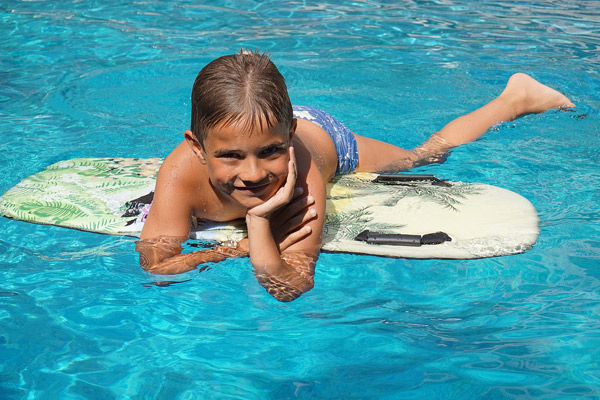- 815-654-7665
- info@soncopools.com
- M-F 9am-6pm - Sat 9am-4pm Sun 10am-2pm



Over a few times in the water, this can lead to a deterioration in the hygiene levels of the water and to maintain this, the water is treated with chlorine that is added to the water. The chlorine breaks down further into a number of chemical compounds. Some very basic chemical reactions give importance to the use of chlorine for maintaining pool hygiene. Chlorine forms hypochlorous acid and hypochlorite ions that clean the water, and these compounds attack the lipids that are present in the cell walls of the microorganisms and other bacteria that contaminate the water. Since these germs and organisms that create the threat to the swimming pool water exist, it is important to remove them from your water.
Water in a well-maintained swimming pool is constantly circulated through pumps that pump purified water into the pool and constantly drain out excess dirt, debris, and other contaminants to maintain levels. Chlorine can be added in several ways, either through some of the pools hardware or manually by spreading across the pool water’s surface equally. Chlorine does help to decontaminate the water, but this process comes with certain drawbacks.
Chlorine does have a sharp and distinctive smell that most people find unappealing, and many people are also affected by the itching that it causes on the skin. The ions of hypochlorite can also stick to fabrics of swimsuits and this can cause colors to fade. It is for this reason that it is always recommended that you have a shower immediately after you leave the pool. Having a shower before you enter the pool can also help to reduce the contamination that your body would carry into the pool. An excess of chlorine in the water can also at times cause other harmful side effects.
Chlorine acts as a sanitizer and makes the water to which it is added safe and free of bacteria. It is also important that pH levels in swimming pools be maintained at about 7.2, for fiberglass swimming pools, which is slightly alkaline, and the adding of chlorine can upset this balance because of the acids it forms when added to water. Though the addition of chlorine can be done with liquid chlorine, pucks and other processes we recommend using our Pool Ninja Pros line of sanitizer products to keep you swimming pool’s water looking it’s best.

